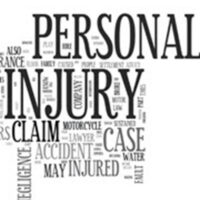Evidence In A Florida Personal Injury Case

Filing a successful negligence claim is largely dependent on the strength of a claimant’s evidence. Basically, the stronger the evidence, the stronger the case and the greater the injured party’s chances of receiving fair restitution for the harm they suffered. Collecting, organizing, and presenting this evidence can be complicated, so if you have questions about the types of evidence you’ll need to build a strong case, you should speak with an experienced Fort Lauderdale personal injury lawyer who can advise you.
What Qualifies as Strong Evidence?
Tangible evidence, or evidence that can be seen, heard, or held is very powerful in personal injury cases. This could include proof of physical scars and other permanent disability to images from the scene of the accident. The importance of non-tangible evidence, however, which comes in the form of documents, testimony, and reports, cannot be understated. In fact, non-tangible evidence makes up the bulk of most personal injury cases.
Photos and Video Footage
Photos and video footage are some of the strongest evidence that a claimant can provide to help prove negligence. Video and photos of the scene of the accident, as well as images of the claimant’s injuries can be particularly convincing to a jury. In some cases, actual footage from nearby cameras can provide nearly incontrovertible evidence of what happened on the day in question.
Medical Records and Expenses
A successful negligence claim will require proof that the claimant suffered injuries as a result of the defendant’s actions. Medical records are one of the best ways to demonstrate this and include everything from records of doctor’s visits and hospital stays to test results and medical bills. All of this information can help establish the costs of a particular accident.
Eyewitness and Expert Testimony
Besides medical documentation and photographs, personal injury claimants also often rely on eyewitness testimony to help establish the sequence of events on the date of an accident. While not as convincing as physical evidence, eyewitness testimony can still play a key role in demonstrating negligence. It’s important to note that the sooner a person’s eyewitness testimony is recorded after an accident, the better, as memories fade over time. It may also be necessary to obtain the opinion of an expert, who can help recreate the accident for the judge or jury, or who can explain the nature of the victim’s injuries.
Documentation of Lost Income and Property Damage
Besides the physical injuries they sustained in an accident, many claimants also suffer serious property damage and lost wages if they cannot go into work while recuperating. Evidence of lost income, benefits, and even future limitations can help create an accurate picture of the types of losses an accident victim has incurred. These numbers will be absolutely critical when seeking a damages award.
Contact Our Fort Lauderdale Legal Team
For help with your own personal injury case, including collecting and presenting evidence in support of your claim, please call 954-566-9919 and set up a consultation with one of the dedicated personal injury lawyers at Boone & Davis today.
